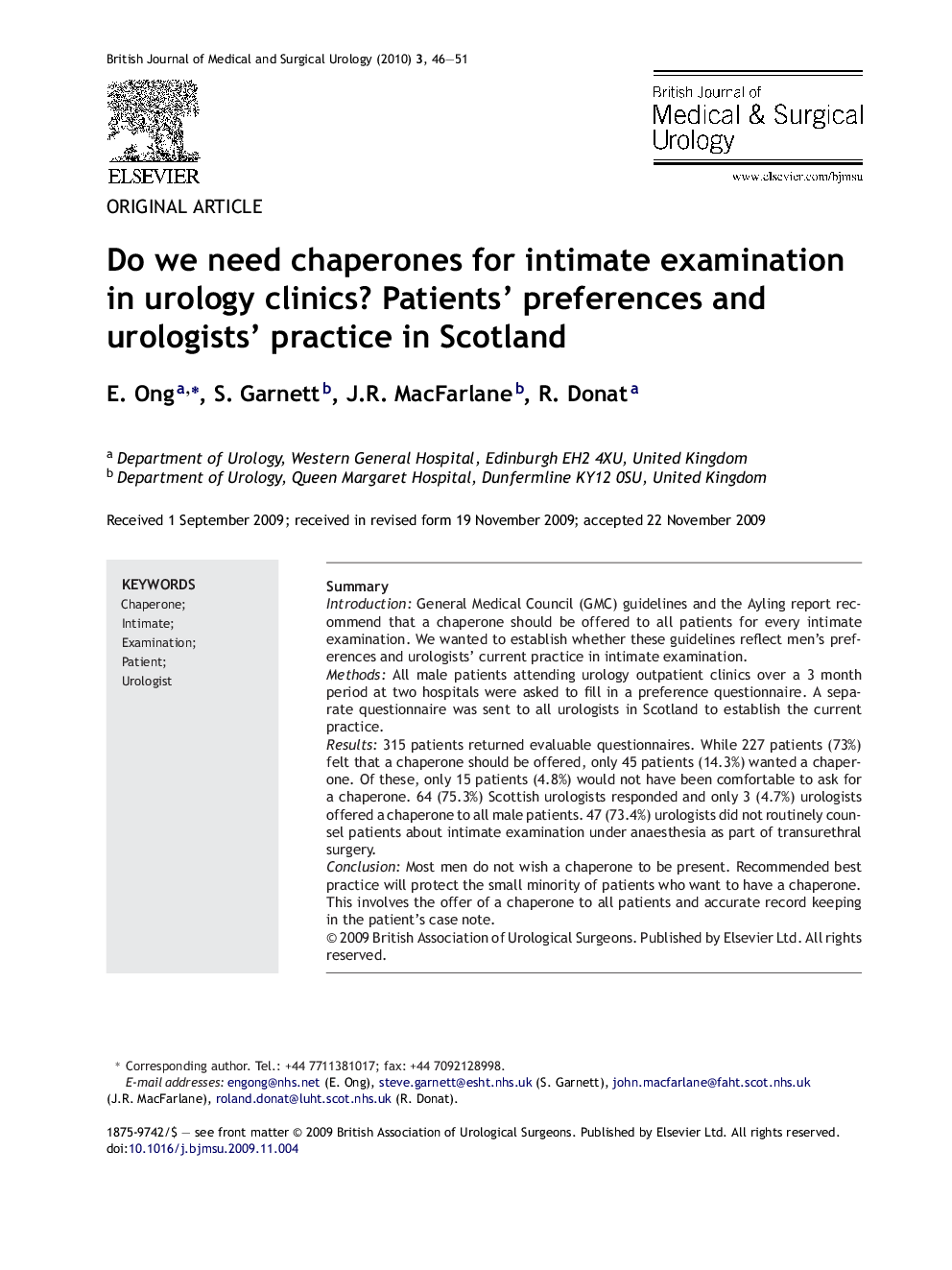| Article ID | Journal | Published Year | Pages | File Type |
|---|---|---|---|---|
| 4268560 | British Journal of Medical and Surgical Urology | 2010 | 6 Pages |
SummaryIntroductionGeneral Medical Council (GMC) guidelines and the Ayling report recommend that a chaperone should be offered to all patients for every intimate examination. We wanted to establish whether these guidelines reflect men's preferences and urologists’ current practice in intimate examination.MethodsAll male patients attending urology outpatient clinics over a 3 month period at two hospitals were asked to fill in a preference questionnaire. A separate questionnaire was sent to all urologists in Scotland to establish the current practice.Results315 patients returned evaluable questionnaires. While 227 patients (73%) felt that a chaperone should be offered, only 45 patients (14.3%) wanted a chaperone. Of these, only 15 patients (4.8%) would not have been comfortable to ask for a chaperone. 64 (75.3%) Scottish urologists responded and only 3 (4.7%) urologists offered a chaperone to all male patients. 47 (73.4%) urologists did not routinely counsel patients about intimate examination under anaesthesia as part of transurethral surgery.ConclusionMost men do not wish a chaperone to be present. Recommended best practice will protect the small minority of patients who want to have a chaperone. This involves the offer of a chaperone to all patients and accurate record keeping in the patient's case note.
